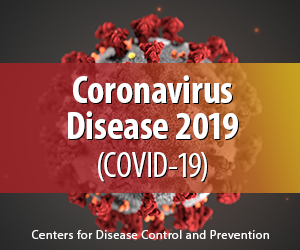By Guster, Hero Mag | Postponing our trip was a difficult decision, but it was the right one. My iPhone note “Guster tour, pros and cons” became more and more skewed. Our upcoming club trip, booked nine months ago after a COVID stop race in March 2020, was in jeopardy. We assumed at the time – it seems to be a lifetime ago – that the winter of 2022 would give us plenty of time to present a trip that was safe for both us and our fans. Other bands made similar plans when our industry once again tried to regain a foothold after the crushing Delta wave. Tickets for our shows went surprisingly fast and a few venues sold out almost immediately. Despite a pandemic that continued to dominate the news cycle, our workplaces and our home life, our fans seemed eager to jump into the mass of humanity that is a rock concert.
Enter Omicron. Early data from South Africa indicated where US case rates were heading, and most experts seemed to predict that the highly contagious variant would be widespread at the time of our trip. My bandmates and I started asking each other, should we postpone it? I was of two conflicting minds: The show must go on and There’s no way we can handle this. Hence the list.
Clearly, public health concerns were top of mind. Omicron was apparently everywhere and we were basically holding a beach party with a tsunami on the horizon. Also worrying was the fact that even though we could gather crowds safely, we could actually lose money if we were not able to complete all the shows due to a positive case on the bus. Many current COVID protocols for touring musicians, which are typically self-imposed, involve regular testing; without layoffs, a band or crew member with a positive test would throw a massive wrench in motion, which could potentially stop our touring machine.
These rules also include a number of behavioral restrictions for travel staff. Example language: “No eating at restaurants / bars / coffee shops. Takeaway is OK. Try to avoid indoor spaces where you are exposed and other people outside your bubble are unmasked.” We are expected to be backstage or on the bus almost every moment, which essentially barriers us from the places we would visit. One of the most uplifting parts of my job is simply being able to explore the cities we are in. Being sequestered backstage, even though it was largely feasible, felt like another of a thousand cuts.
I also struggled with how our energy on stage would feel. Should I be able to stand up in front of our fans every night and say sincerely, “It’s good to be here. I’m glad we’re all here in this room tonight”? In the weeks leading up to it , which was supposed to be our first show, I was bombarded with anxious thoughts: It does not work properly. It does not feel like what we or our fans need right now. And if I could not buy into the basic premise – that it was safe to gather and communicate through our music – it felt irresponsible to step up to that microphone and into the aerosol haze night after night.
I could not speak with authority about the most important component of our calculation: How did our audience feel about the prospect of getting to our shows? What started as direct messages to the band (Are you canceling your shows? or I have booked airline tickets and hotels, are these concerts happening?) soon became requests (I hope you will cancel your Boston show; it does not feel safe right now). So I threw it back to our fans, which became the Twitter post that ultimately killed our tour. On January 3, we wrote:
Real q: On a scale of one to ten, how comfortable would you be attending a live concert in January? (1 – “I’m never leaving my house again” and 10 – “What’s a Covid?”)
Just trying to wrap my head around this thing… ?? — guster (@guster) January 3, 2022
The Twitter responses underlined for us the responsibility we had as a catalyst for a mass gathering. As live entertainers, we share a goal of bringing hundreds or thousands of people together for a few hours in one room. Although most of our fans remained COVID-free, what if one of them brought the virus home to their children? What if our show directly led to the hospitalization of a vulnerable senior? Concerts earlier in the year became known as super-spreader events; is that really what we need to do here?
A particularly heavy band Zoom ended with a collective decision to postpone the tour. We were able to find new dates for the biggest couple of shows in Boston. And we continue to climb after the rest of the make-up shows.
> > > > > > > > >
Read Guster’s whole “rant” here:
https://heromag.net/omicrons-blow-to-live-music
[Thanks to Alex Teitz, http://www.femmusic.com, for contributing this article!]

